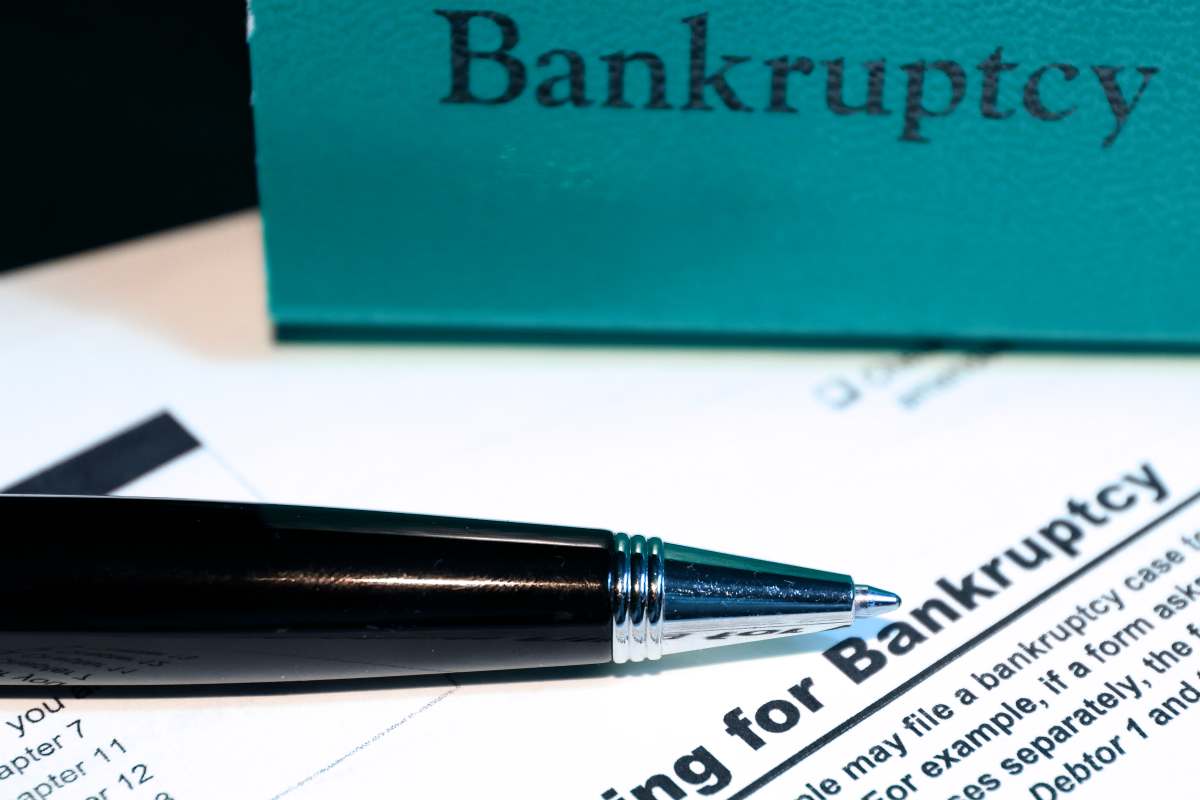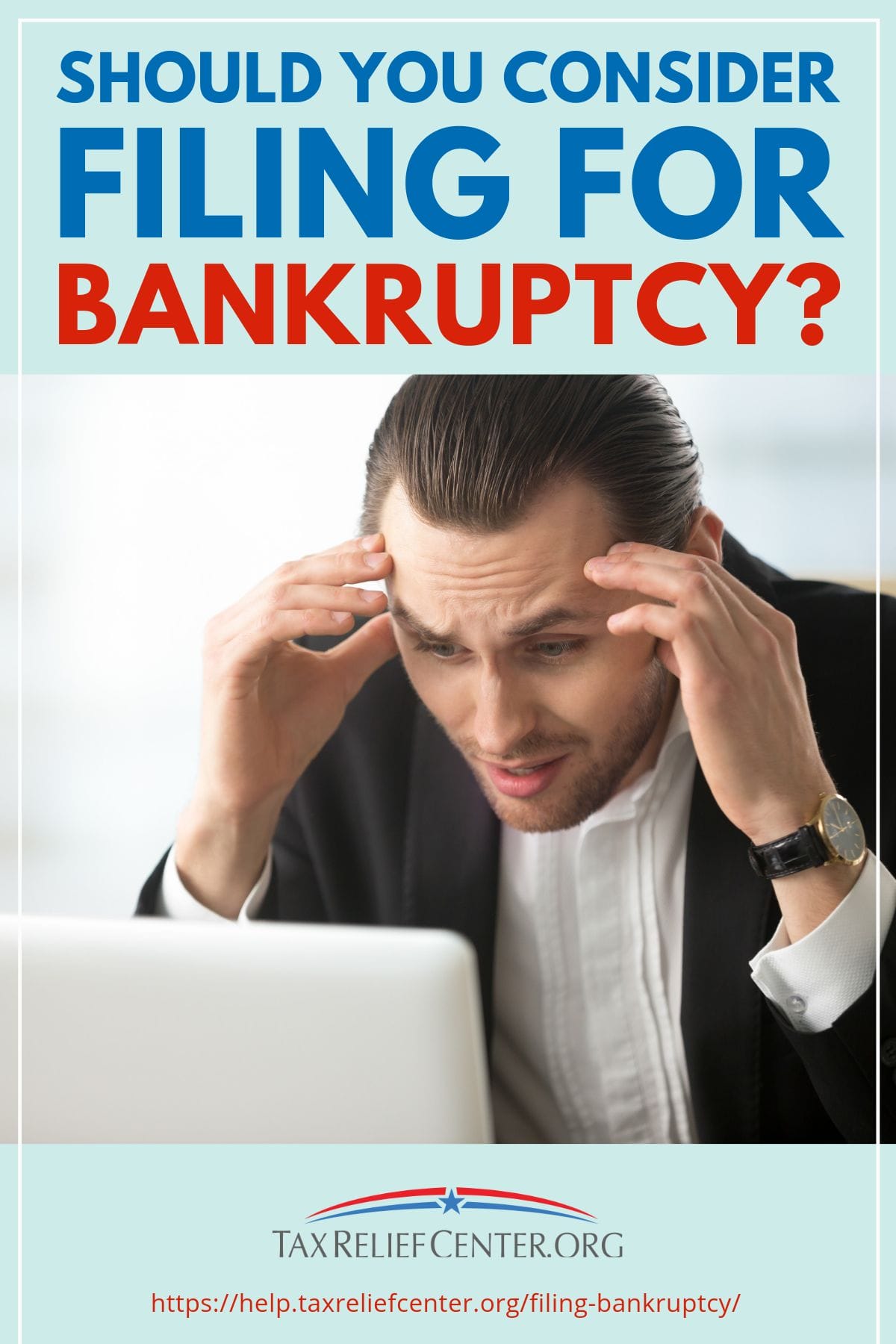Know what filing for bankruptcy is all about and what it entails in the article below.
RELATED: Tax Relief For Deserving Americans | Do You Qualify?
In this article:
- What Does It Mean to File for Bankruptcy?
- Is Filing for Bankruptcy Bad?
- How Does Filing for Bankruptcy Affect You?
- How Much Do You Have to Be in Debt to File a Chapter 7 Bankruptcy?
- Will a Chapter 13 Bankruptcy Ruin My Credit?
- Is It Better to File for Chapter 7 or 13?
Filing For Bankruptcy
What Does It Mean to File for Bankruptcy?
Bankruptcy is a legal term for a financial situation where an individual or a business cannot pay debts anymore.
During the course of bankruptcy, there is a legal proceeding where a federal court examines all the assets and liabilities of an entity to assess if the court can forgive its debts.
So, what happens when you declare bankruptcy?
Below is the typical process of filing for bankruptcy:
- Compile all your financial records and assess your current financial condition. This includes gathering all your tax returns, real estate property certificates, bank statements, and proof of alimony.
- Get mandatory credit counseling with a legally approved credit counselor within 180 days before legally filing for bankruptcy.
- Create a legal petition by filling out the different bankruptcy forms and submitting them to a local bankruptcy court. The individual filing for a Chapter 7 should also pass the Means Test and provide proof of completing credit counseling.
- After submitting the required forms, the court will assign a trustee. You may be invited to a court meeting to explain your current finances and bankruptcy forms.
- If the court confirms your eligibility, the trustee will now inform you to manage your assets to be able to distribute them to your creditors.
- Then, you may be required to take financial management and debtor’s education courses. After completing these, fill out Form 423 Certification About a Financial Management Course.
- You will then receive your debt discharge in the mail.
Receiving your debt discharge implies your case is now officially closed. This means you are no longer legally liable to pay off your creditors.
Is Filing for Bankruptcy Bad?
Filing for bankruptcy is not entirely bad. There are also instances filing bankruptcy yourself can be beneficial for you, like the following:
A. You can’t seem to negotiate with your creditors.
If your creditors demand full payment and do not want to agree on a debt settlement plan, then filing for bankruptcy may be the optimal option for you.
B. Your assets cannot cover your liabilities.
This is one of the major reasons why individuals and businesses file for bankruptcy. If you still have remaining liabilities after exhausting all your assets, then you already need to file bankruptcy to wipe away those debts.
C. You want to protect your assets.
During the course of legal court proceedings, your assets, such as your IRA account, may be liquidated. But, in 2005, the U.S. Supreme Court mandated that individual retirement accounts are already protected against creditors.
How Does Filing for Bankruptcy Affect You?

The fundamental goal of bankruptcy laws is to ensure a debtor, burdened by debts, can be given a financial fresh start. However, there are pros and cons to filing for bankruptcy.
Pros
A. It discharges you from liabilities.
This is achieved through a bankruptcy discharge.
B. It helps you avoid foreclosure on assets.
The bankruptcy’s automatic stay feature can stop the process of foreclosure or repossession. This gives you sufficient time to negotiate with your creditors.
C. It allows you to catch up on missed payments.
Through Chapter 13 bankruptcy, you are given the chance to catch up with your debts through an affordable payment plan. As long as you follow this plan, bankruptcy’s automatic stay will stop any possible foreclosure on your assets.
Cons
A. It still does not exclude you from other obligations.
A bankruptcy may discharge you from liabilities but it does not eliminate other types of debts such as child support, student loans, and any fraud-related debts incurred.
B. It will be reflected in your credit score.
As mandated by the U.S. Fair Credit Reporting Act, different credit rating agencies may disclose your bankruptcy for up to 10 years.
This will greatly affect your credit score. Banks are usually hesitant to grant unsecured loans to applicants with a history of bankruptcy.
This may also affect your future job applications since some employers look at credit reports.
C. It may impact your credit card application.
Some credit card companies may also look into your payments history. This may affect the credit limit granted to you.
RELATED: 9 Qualifications For The IRS Fresh Start Program
How Much Do You Have to Be in Debt to File a Chapter 7 Bankruptcy?

Chapter 7 Bankruptcy Definition: This is applied to individuals and businesses that do not have the capability to create monthly debt payments, regardless of their solvency status.
With Chapter 7, bankruptcy can be discharged by liquidating non-exempt assets first. Notably, the definition of what constitutes non-exempt assets may differ from one state to another.
To file for a Chapter 7, you have to meet the following eligibility requirements:
a. Your monthly income for the past few months is less than your state’s median income for your family size;
b. You have passed the Chapter 7 Means test;
c. You have finished credit counseling;
d. You have submitted a filled out Statement of Financial Affairs and your most recent tax return to your local bankruptcy court.
Will a Chapter 13 Bankruptcy Ruin My Credit?
The Chapter 13 bankruptcy is also coined as the wage earner’s plan.
It discharges bankruptcy for individuals and sole proprietors through a debt payment plan for all or just a portion of their debt.
Like other types of bankruptcy, Chapter 13 may still be reflected in your credit reports for up to 10 years.
Is It Better to File for Chapter 7 or 13?
Chapters 7 and 13 have their own unique features. You may choose which is best suited for you depending on your needs and capability to pay.
Here are some of their key differences:
A. Debtors who can file
Both individuals and businesses can file for Chapter 7. However, only individuals and sole proprietors can file for Chapter 13.
B. Discharge waiting period
For Chapter 7, discharge from bankruptcy may be received in 3 to 4 months after filing. As for Chapter 13, discharge may only be granted upon completion of all payments.
C. Eligibility on income
With Chapter 7, the debtor’s income should be low enough to pass the Means test. Meanwhile, with Chapter 13, the debtor should not have an unsecured debt greater than $394,725, and a secured debt greater than $1,184,200.
D. Handling of properties
With Chapter 7, the trustee can sell all of the debtor’s non-exempt properties.
With Chapter 13, the debtor can keep all non-exempt properties. However, the debtor must pay the unsecured creditors an amount equivalent to the value of such properties.
Filing for bankruptcy may be a huge financial step for you. It entails legal court proceedings, along with sufficient counseling and debtor’s education.
While it has numerous benefits, you must consider other alternatives. Filing for bankruptcy should be your last resort as it also has adverse effects on one’s financial standing.
How do you avoid bankruptcy? Share your thoughts in the comments section below.
If you owe back taxes, visit taxreliefcenter.org for more information on tax relief options.
Up Next:
- Penalty Abatement: 9 Factors That Can Qualify As Reasonable Cause
- Understanding The IRS Collections Process To Quickly Resolve Taxes
- Simple And Practical Frugal Living Tips You Can Start Doing Today


